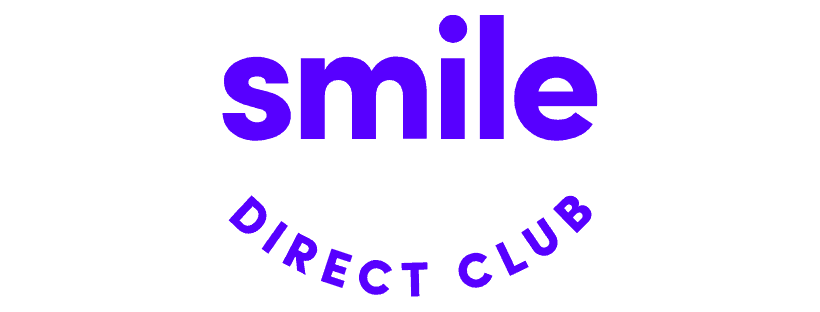
Ever since they started selling home aligners in 2018, Byte has been pioneering new and creative ways to improve the teeth straightening process without sacrificing treatment quality. So far, they’ve incorporated intriguing technology, developed a convenient treatment, and implemented a generous lifetime warranty.
Byte’s innovations and commitment to quality have shot them to the top of our overall home aligner rankings. But no company is perfect, and the best fit for you depends on your unique situation. It’s tough to beat Byte’s attractive perks, but it’s always a good idea to explore your options. Based on extensive industry research, we’ve put together a shortlist of the best alternatives if Byte isn’t quite right for you.
Table of Contents
How we Select and Review Clear Aligner Companies
Smile Prep has reviewed a total of 12 clear aligner brands in-depth. Review candidates include not only the most popular brands, but also several lesser known options that, in our view, have something unique to offer.
Smile Prep’s reviews offer the perspective of a well-informed consumer. This means that our views are not professional opinions, and we do not independently verify the claims the manufacturers make about their products. Instead, the value that we offer is to collect the claims that clear aligner companies make about their products and compare them for your convenience. We also analyze customer perspectives, including hundreds of reviews that we gathered directly from Smile Prep’s visitors. In many cases, we have also corresponded directly with company representatives and/or sampled products or impression kits first hand. You can learn more about our review process by checking out our publishing principles.
#1: Candid
Candid isn’t an at-home clear aligner brand like Byte, but they provide some of the same convenience. Unlike Byte, Candid treatment begins in a dentist’s office, and that dentist remains involved throughout the process. Over 8.5 months (on average), you’ll use remote monitoring technology to check in every two weeks. This allows your dentist and Candid’s team to keep you on track, and some research shows that this kind of remote monitoring is clinically accurate at tracking tooth movements.
Candid is usually a lot more expensive than Byte, but that higher price comes with dentist face-time and robust clinical oversight. If you value personalized care, it could be a great option.
Candid Pros
- Candid has 800+ providers nationwide who you can visit for an in-person consultation, and who will collaborate with Candid throughout your treatment. Byte’s dental team is 100% remote, so you won’t receive any in-person care.
- While CandidPro doctors typically minimize the amount of attachments they use, they have the option to include them. They can also include elastics, bite ramps, and IPR in their treatment plans. Studies reviewed by our non-clinical team show that attachments can improve retention and orthodontic tooth movement.
- Candid’s treatment plans can incorporate movements to all of your teeth, including the molars, which can help avoid the bite complications that can come with purely cosmetic teeth shifts. Byte focuses primarily on the front six teeth (and sometimes premolars).
- Your dentist and Candid’s team will have their eyes on your teeth every 14 days via remote check-ins, allowing them to address any concerns right away. Byte recommends photo check-ins, but only requires them if you have certain conditions.
- Candid crafts their aligners from Zendura FLX, a widely trusted dental-grade plastic that the company claims retains more of their force over time than other materials.
Candid Cons
- At $3,500+, Candid is much more expensive than Byte.
- Candid doesn’t offer a nighttime-only treatment option like Byte does. There may be a small amount of leeway here, but your dentist will most likely require you to wear your Candid aligners for at least 22 hours per day.
#2: SmileDirectClub
Byte might be one of the clear aligner industry’s most prominent brands, but SmileDirectClub has been in the game a lot longer. Since they began selling aligners in 2014, SmileDirectClub has straightened more than two million smiles, giving them a huge wealth of experience. Plus, they have physical locations across the country, a CarePlus treatment option that incorporates in-person care, and an expansive network of partner dentists.
In the past, there have been questions about the quality of their customer support, but they’ve made improvements and gone the extra mile to ensure the utmost convenience for their customers.
SmileDirect Pros
- SmileDirectClub has established 100+ SmileShops across the U.S., where you can receive a free teeth scan instead of completing an impression kit. Plus, they have a network of more than 1,000 dentist’s offices, where you can also start your treatment. The only way to get started with Byte is by taking impressions of your teeth from home.
- SmileDirectClub is the largest home aligner provider on the market and has a much longer track record than Byte.
- SmileDirectClub has a 30-day money-back guarantee, and they’ll issue prorated refunds for unused and unopened aligners at any point during treatment. Byte doesn’t offer refunds after you begin treatment.
- Like Byte, SmileDirectClub offers a nighttime-only option that only requires ten hours of continuous daily wear. But while Byte charges more for their premium nighttime option, SmileDirectClub customers pay the same $2,250 price.
- SmileDirectClub’s Lifetime Smile Guarantee operates much like the Byte for Life guarantee. They’ll provide additional aligners if your teeth shift after treatment, as long as you’ve been replacing your retainers every six months and wear them as prescribed.
- Their CarePlus treatment involves appointments with a local dentist, then remote monitoring with what they say is a team of hygienists and dental assistants. However, this plan costs $3,900.
SmileDirect Cons
- Over the years, SmileDirectClub has accumulated some poor customer service reviews. While it appears they’ve made improvements, some customers still report delays in communication and complaint resolution.
- SmileDirectClub charges an additional $125 fee for retainers after treatment. Byte offers your first set of retainers for free.
- SmileDirectClub charges $2,250 for standard all-day aligners, while Byte charges $1,999.
SmileDirectClub - The Bottom Line
If you appreciate the trustworthiness of extensive experience and brand power coupled with convenient, flexible treatment options, SmileDirectClub could be a great option.
Special Offer: SmileDirectClub often provides steep discounts off its impression kit - up to $60 off
#3: NewSmile
NewSmile entered the at-home aligner market after Byte, but they’ve got even more affordable pricing and consistent remote oversight. They made their debut in Canada in early 2020, then expanded to the U.S. shortly after. In those few short years, NewSmile’s low price, app-based check-ins, interest-free financing, and satisfaction guarantee have already made waves. It has some room for growth, but it’s still a solid option.
Pros
- With a $1,595 price tag, NewSmile is one of the most affordable at-home aligner treatments available. Byte is a solid deal, but NewSmile is hundreds cheaper.
- NewSmile offers the convenient option of nighttime-only treatment for $1,695.
- NewSmile requires you to submit videos of your teeth via their app every two weeks, and even though Byte recommends sending photos every two weeks, they don’t require it.
- While many budget-friendly options skip all the extras to keep costs low, NewSmile includes your impression kit, retainers, and whitening kit. Byte includes many of the same items, but charges $95 for their impression kit.
Cons
- Like Byte, NewSmile doesn’t have any clinics that provide dental scans, so you’ll need to create impressions of your own teeth to get started, which can be tricky.
- As a younger company than the others on this list, NewSmile doesn’t have a wealth of experience, and they’ve yet to accumulate a lot of reviews, so it’s tough to gauge their customer experience.
NewSmile - The Bottom Line
NewSmile pairs affordable prices with accessible financing, remote oversight, and the option for nighttime-only aligners. While they’re new and there aren’t tons of reviews available, we still feel they are a solid choice.
Special Offer: Receive $100 Off NewSmile
What About Invisalign?
Invisalign is the original clear aligner system and the industry’s most well-established brand. They’ve transformed over twelve million smiles to date, and they’re widely respected by dentists and customers alike. So why aren’t they on this list? Because, while Invisalign might deliver a similar product, on the whole, their processes are quite different.
Like Candid, Invisalign is administered in-office by your dentist. At-home systems like Byte have licensed dental professionals that develop aligner treatment plans remotely, but customers must administer them from home.
Over 100,000 dentists and orthodontists in 90 countries are trained and licensed to offer Invisalign treatment. Choosing Invisalign would mean that you must make regular office visits for your dentist to monitor and adjust your aligners (if necessary). Further, it also gives them the opportunity to apply elastics and attachments that can encourage more intricate tooth and jaw movements.
This makes Invisalign more expensive ($3,000–$8,000) and more time-intensive (12–18 months on average), but it also means that Invisalign’s treatment can correct a wide scope of severe conditions, including bite issues like overbite, underbite, and crossbite. If your condition turns out to be too severe for home aligner treatment, or if you’re simply more comfortable seeing your dentist face-to-face each month, Invisalign could be a great option.
How Should I Evaluate My Options?
We’ll be honest: choosing a clear aligner company isn’t easy. There are a few different trustworthy options, and each has its own advantages and drawbacks. Don’t just go with the first company you find — evaluate multiple options and see how each one measures up to your expectations and goals.
It’s easy to get caught up focusing on a single aspect, like price or timeline, but in doing so, you might miss some potential issues in other areas. We suggest looking at five different things when evaluating home aligner companies:
- Scope of Treatment: Who is in charge of your treatment plan? Do you receive in-person oversight? Can the aligners incorporate attachments? All these things can influence a treatment’s scope of treatment. Before anything else, you’ll want to make sure a treatment can actually correct your condition.
- Affordability: If you’re on a budget or just a habitual bargain hunter, low costs might be your priority. This isn’t just the initial cost you find on a company’s homepage. You should also consider their financing options, payment plans, and what items the sticker price includes.
- Convenience: Eliminating office visits means that all home aligner treatments are more convenient than in-office options, but certain companies take extra steps to be even more user-friendly. Providing various ways to get started and multiple treatment schedules, while reducing wait times, helps increase a company’s convenience.
- Appearance: Clear aligners are pretty discreet, but by experimenting with different plastics, surfaces, and designs, home aligner companies have made them even more so. Aesthetics somewhat depend on personal preferences, though, so what looks “best” might vary based on a customer’s tastes and style.
- Customer Experience: Because customers complete their treatment entirely on their own, home aligner companies need to be on their customer support game to answer questions and resolve issues. Contact channels, responsiveness, helpfulness, and refund policies all play into the quality of a company’s customer care.
What Factors Matter Most To You?
While you should consider all the factors above, it’s natural to focus on one or two in particular. That’s why we’ve created guides showing which home aligner companies excel in each category:
Final Thoughts
We’re excited about Byte. In just a few years, they’ve incorporated innovative technology while establishing a treatment that we find pretty convenient. They’re #1 in our overall rankings, but that doesn’t mean that they’re the best option for everyone.
If one of the alternatives in this guide caught your eye, they could very well be a better option for your specific circumstances. That’s why it’s important to know your goals, timelines, finances, etc. and consider each option within those parameters. This way, you won’t just end up with a decent aligner treatment, you’ll get the best treatment available for you and your beautiful smile.
Frequently Asked Questions
Should I get Invisalign instead?
Invisalign is powerful and intensive, although it’s not a treatment you can complete from home like the companies outlined in this guide. Instead, your dentist will create and administer your treatment during regular office visits. This makes Invisalign a bigger investment of time and money ($3,000–$8,000 on average), but it also allows your dentist to treat more severe cases of crowding and spacing, plus bite issues.
If you’re worried about the severity of your condition or would rather have one-on-one dentist interaction as part of your treatment, Invisalign is worth considering.
Which at-home aligner companies offer nighttime-only treatment?
SmileDirectClub, Byte, AlignerCo, and NewSmile. Byte, AlignerCo, and NewSmile charge more for nighttime treatment than daytime treatment, while SmileDirectClub charges the same amount.
What is the cheapest alternative to Byte?
If you’re operating on a tight budget, Byte’s financing plans can still make it a great option, but the most affordable overall choice is AlignerCo. You won’t find a lower price tag — plus, their multiple financing options make payments even more manageable. For an overview of all the most budget-friendly options, read through our review of the Most Affordable Clear Aligners.
Which at-home aligner company is right for me?
Our opinion? Byte is the best all-around option. But it depends on your condition and priorities. Recommend evaluating each company’s scope of treatment, affordability, convenience, appearance, and customer service. For comprehensive analyses of the top companies, see our top five home aligners guide.
Which conditions can at-home aligners treat?
Home aligners can only treat mild-to-moderate cases of crowding and spacing, along with some mild bite issues. If your case is severe or includes a jaw misalignment like overbite or underbite, home aligners might not have the capacity to induce the larger tooth and jaw shifts you’re after.
Does insurance cover clear aligner treatment?
It depends entirely on your provider and plan. Byte, for example, partners with Anthem, Empire, Guardian, and Aetna (and they’re working on others) for in-network coverage. But having orthodontic benefits doesn’t automatically mean you’ll receive coverage. You should check with your insurance provider to find out for sure.
How do I get started with home aligners?
You’ll need to order an impression kit and create molds of your teeth, then send them to your company of choice. If you go with SmileDirectClub, you can visit one of their physical locations for a free teeth scan, which replaces the impression kit process.
What is the most convenient alternative to Byte?
Convenience can mean different things to different people. While some might consider Byte’s efficient treatment times convenient, others might prefer SmileDirectClub’s easy startup process and flexible treatment options. Compared to traditional orthodontic treatments like braces, all home aligners are more convenient, but for a few of the companies that really excel in this category, read our review of the Most Convenient Clear Aligners.
Are home aligners safe?
At-home clear aligner treatment plans are always designed and/or approved by a licensed dentist or orthodontist — as long as you’re buying from a legitimate clear aligner service.
The main concern regarding the safety of fully-remote clear aligner treatment is the lack of face-to-face care. Since you won’t be seeing a dentist in-person during treatment, you won’t receive the same level of support that you’d get with traditional in-office aligners like Invisalign or ClearCorrect. That said, a recent NIH-funded survey found the majority of at-home aligner customers were satisfied with their results, and only 6.6% experienced side effects necessitating a visit to their local dentist.
Read our guide to safe home teeth straightening treatment for more information.
Which clear aligners are the least noticeable?
Every clear aligner company strives to make its products less visible and more discreet, and each one will tell you that their aligners are the best looking. Much of this comes down to personal preferences, but our opinion is that AlignerCo and NewSmile make pretty discreet aligners. However, those two aren’t the only companies that excel in appearance. Take a look at our review of the Best Looking Clear Aligners for more details.
Do clear aligners hurt?
Customers often report experiencing tightness or discomfort during the first 1–2 days wearing a new set of aligners, after which the discomfort subsides. Some companies provide “chewies” or other devices to help ensure a more comfortable aligner fit.



Join The Discussion: